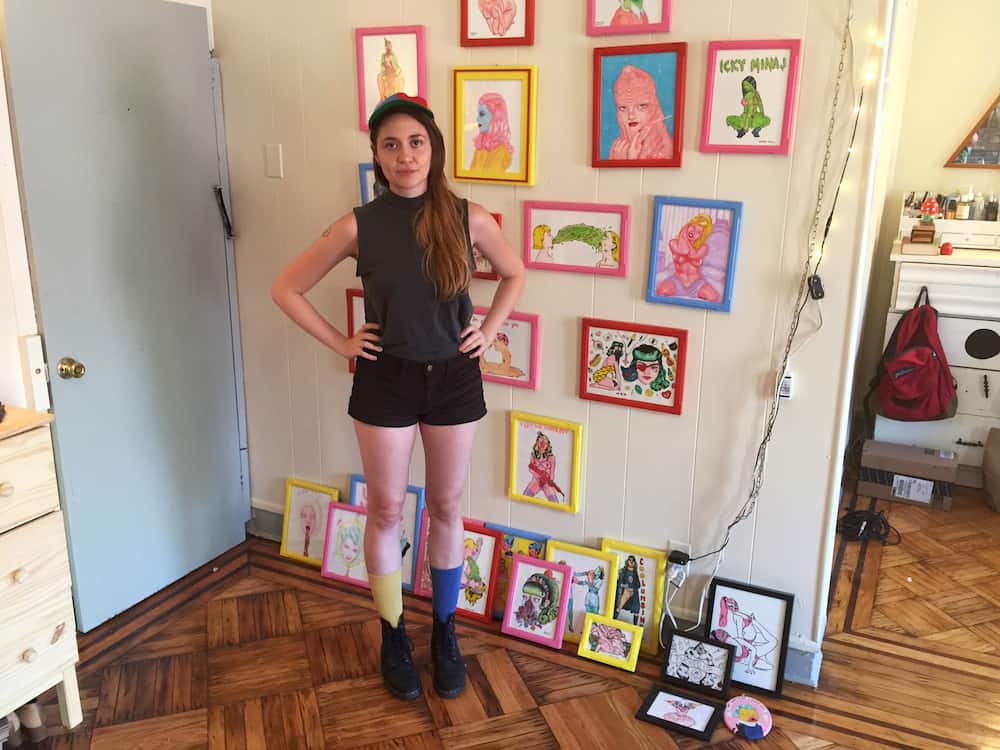
In virtually every industry in the world, men dominate the workplace and usually the hiring teams, leading to more men and significantly less women. Of course, there are exceptions to this unspoken rule, and many huge companies are working hard to combat this tendency, but one industry that suffers from being highly male-dominated is the tech industry. This has become more evident in recent years and, sadly, has truly to come to light with accusations of sexual harassment, overt sexism, and gender bias from female employees against higher-ups in the companies. Two women breaking into the tech industry also experienced this sexism and decided there was only one way to combat it: to play into it.
The two women, Penelope Gazin and Kate Dwyer, launched their own curated online shop, called Witchsy, just last summer and immediately noticed that there was something wrong with the way they were being treated.
“When we were getting started, we were immediately faced with ‘Are you sure? Does this sound like a good idea?’ I think because we’re young women, a lot of people looked at what we were doing like, ‘What a cute hobby!’ or ‘That’s a cute idea,'” Dwyer told Fast Company.

As time went on, the comments from other men they were attempting to work with became condescending, and that’s if they even responded at all. A lot of the time, the pair said that they wouldn’t receive responses or their requests would take days to be met. Even then, they were constantly questioned about their decisions or ideas, and they soon began to tire of this behavior.
It took two obstacles that the women needed to overcome for them to add a “third cofounder” to their website: one was overt and the other was subtle. In an email, a developer took days to respond to the entrepreneurs, and when he did, he started by saying, “Okay, girls…” In a more severe example, the early developer they brought on tried to stealthily delete the work they paid him to do after Gazin denied his request to go on a date. So the two created a third cofounder named Keith Mann to handle some of their virtual business interactions.
“We just had this thought — why don’t we see what happens if we have a man on our team, a ‘Keith Mann’,” Dwyer told ABC.
“It was like night and day,” she said. “It would take me days to get a response, but Keith could not only get a response and a status update, but also be asked if he wanted anything else or if there was anything else that Keith needed help with.”
Though the people behind the emails never changed, the perception of Keith as a male contacting another male for assistance made all the difference. Gazin and Dwyer employed “Keith’s” services whenever they were working with a difficult developer or someone that was treating them in a condescending manner. They mostly used Keith for emails in the earlier days while developing their startup, and have since retired and laid to rest their third cofounder, but aren’t against bringing him back if things start getting tricky again.

Other female entrepreneurs are applauding their creative way of handling the problem, while others are saying that their use of a male cofounder perpetuates the problem rather than facing it head-on by confronting other males about their behavior. In response, the pair acknowledged that their strategy may be controversial, but it worked for them.
“I think we could have gotten pretty bent out of shape about [the sexism],” Dwyer said. “Wow, are people really going to talk to this imaginary man with more respect than us? But we were like, you know what, this is clearly just part of this world that we’re in right now. We want this and want to make this happen.”
Their Witchsy startup has done pretty well in the past year, with $200,000 in merchandise sales of their quirky items. Gazin and Dwyer describe their website as an “online community for our favorite artists, known and unknown.” They focus on working directly with artists, so much so that the artists themselves fulfill the orders of their products. You can find all of their fun items here.


